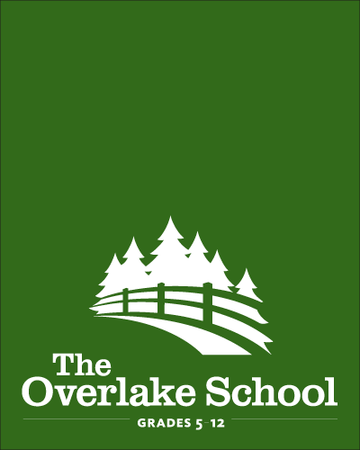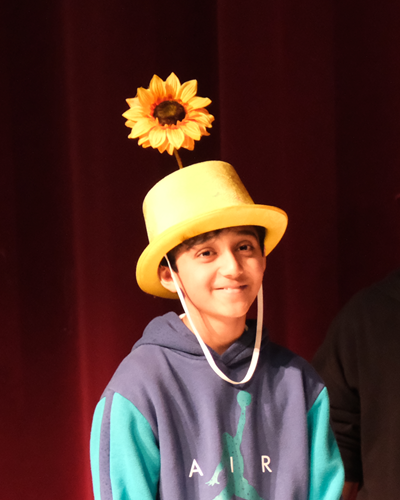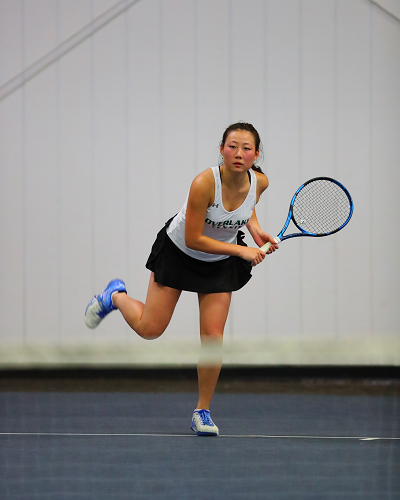Academic Integrity
As an academic institution, The Overlake School values academic integrity. All students are expected to be honest in their academic endeavors. Any dishonesty, including academic dishonesty, such as cheating or plagiarism, is unacceptable in the Overlake community. It should be noted that cheating/plagiarism can be a minor offense or a major offense depending on the circumstances and severity of the offense. This decision is made collaboratively by the teacher involved, Department Head, Head of Student Experience, and Upper School Head with the final decision being made by the Head of Student Experience.
Cheating
Cheating includes the following:
- Giving or receiving, offering or asking for any information during an examination, test, or quiz.
- Glancing at another student's paper or using any notes that have not been authorized by the teacher for use on examination, test or quiz.
- Providing information about the content of an examination, test or quiz to students in other sections of a course.
- Illicitly obtaining information about the content of an examination, test or quiz.
- Copying from another student, providing for copy to another student, or utilizing unapproved resources by the teacher, to complete work assigned by the teacher.
- Using an electronic translator in Modern and Classical Languages courses to translate source material into the target language.
- Committing false citation by citing a source for material not directly consulted or if the material was not obtained from that source.
Plagiarism
Plagiarism is the submission of material that in part or whole is not entirely one’s own work without attributing those same portions to their correct source. It is vital that a student distinguish clearly between what has been learned from others and what they are personally contributing to the reader’s understanding. To avoid plagiarism, students must pay close attention to the standards for proper attribution covered in detail in their classes.
It should be noted that intent is considered in plagiarism cases, but the lack of intent to plagiarize does not constitute a lack of plagiarism. Students are responsible for the content of their paper, and they should take the necessary steps to ensure that they are aware of any issues prior to turning in the paper.
Multiple Submissions
If a student wants to submit a single paper or completed assignment in more than one class, even though it is their original work, the student must have the express permission of their teacher(s) in advance, otherwise it may constitute academic dishonesty. To avoid any possible misunderstanding, students should discuss plans for revising or reusing any part of an earlier piece of work with their teachers in advance.
Guidelines for Parents, Tutors and Peers Helping Students with Writing
In order to promote academic growth, we need to ensure that students submit work that reflects their ability so that we can assess their skill levels accurately and best respond to their individual needs. It is natural that parents want to be involved in their student’s learning. At the same time, it is important that students maintain ownership of their writing. Best practices for parents, outside tutors and peers when helping a student with writing can be found here.
For peer editors:
It is necessary to communicate with your teacher that you are planning to peer edit outside of class time if you are doing this virtually. Unless it can be verified that both recipients’ copies have been sent to each other for analyzing, such an action is considered cheating - ensure that the transaction is “two-way”. It is necessary that such actions are done without pressure or coercion; it’s okay to reject editing someone else’s paper.
Consequences for Academic Dishonesty
The following steps will be followed if a student is suspected to have violated the school practices on academic integrity:
1. The classroom teacher determines whether they believe an infraction has occurred. If they determine that they believe an infraction has occurred, they will have a conversation with the student.
2. Then, the classroom teacher reports the occurrence to their Department Head and the Head of Student Experience or Middle School Head (who will report back to the teacher as to whether this is the first or second academic dishonesty offense). The teacher in consultation with their colleagues (Department Head and/or another colleague within the department) and administration will determine whether it is cheating or plagiarism.
3. If it is determined that cheating or plagiarism has occurred, the student may receive a reduction in points on the work, up to the possibility of receiving a total zero on their assignment.
4. The student’s advisor and parents are notified.
5. If the cheating or plagiarism is considered an infraction, then the consequences beyond what is listed in points 1, 2, and 3 above will be determined by the Head of Student Experience or Middle School Head in collaboration with the teacher involved. For Upper School students, if the cheating/plagiarism is considered significant, then the student will be referred to the Student Review Board. In most cases, plagiarism cases will also be referred to the Student Review Board. It should be noted that any case of cheating or plagiarism that is a second offense or more, will be deemed significant given the pattern.
6. It should be noted that in all cases of plagiarism or cheating, the teacher, departmental colleagues, and administration will determine whether cheating/plagiarism occurred. The Student Review Board does not determine whether an infraction has occurred, rather it decides what steps should be taken and recommends them to the Head of Student Experience.
NOTE: Faculty members have an obligation to report any instances of plagiarism or cheating to school administrators.
Contact
Mike Davidson
Middle School Head
mdavidson@overlake.org
425-602-7129
Contact
Krishna Davda
Head of Student Experience
kdavda@overlake.org
425-602-7128



